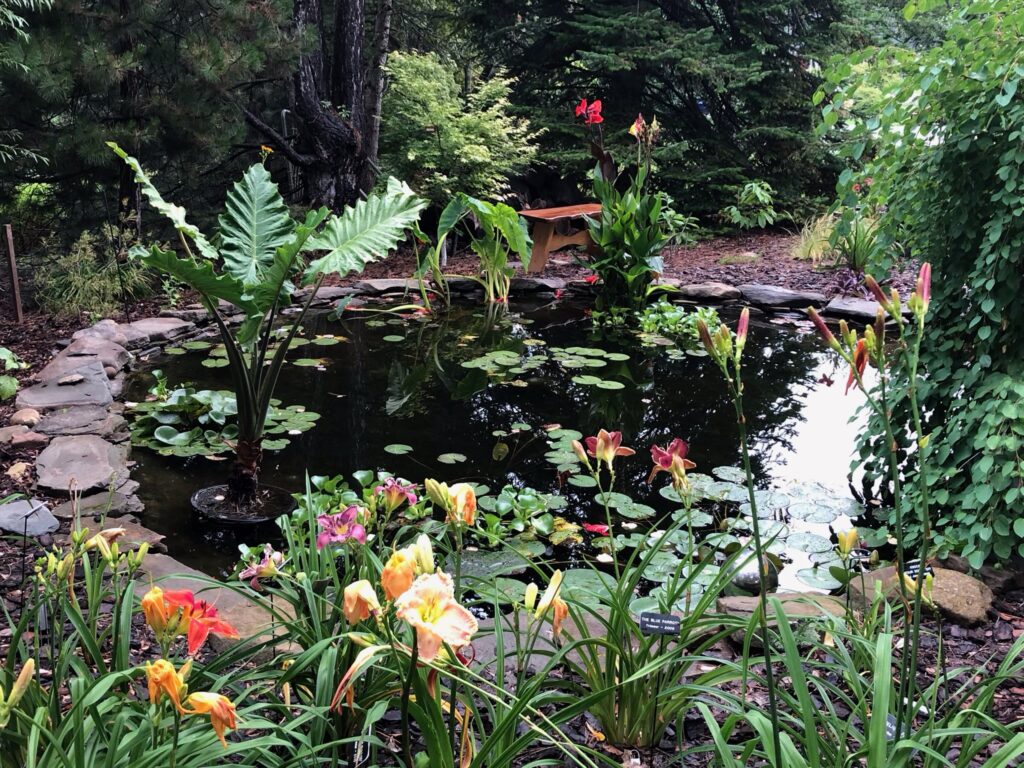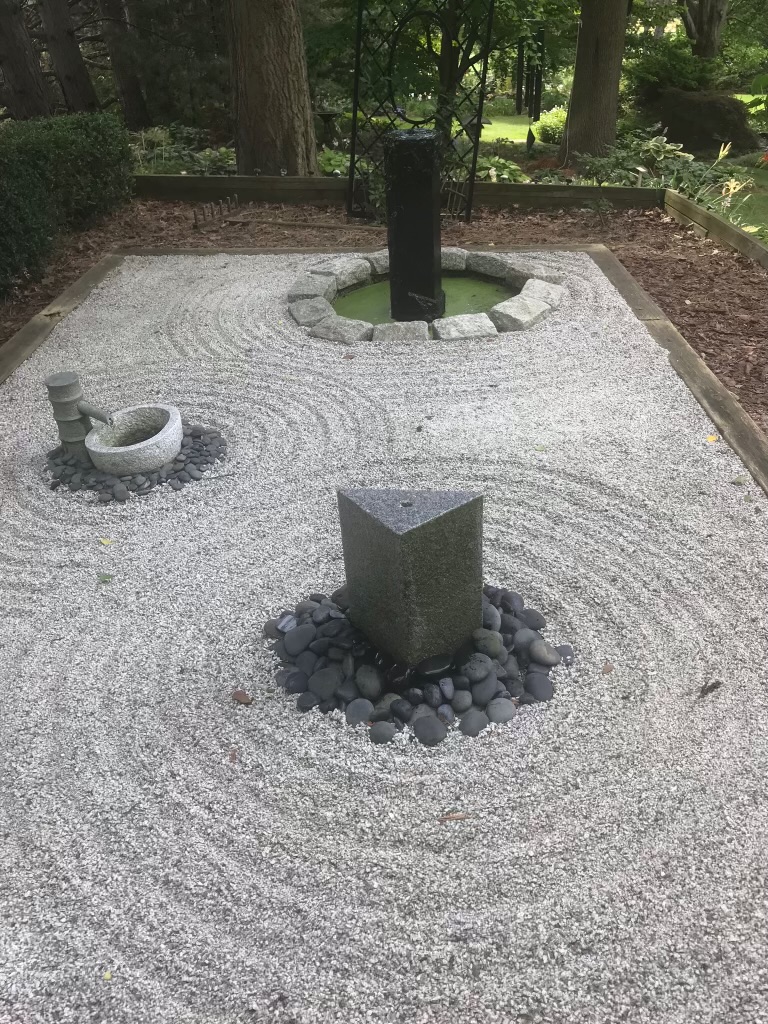A one-of-a-kind gem in Pittsford

Garden tours will take you to a lot of pretty outdoor spaces, but there aren’t many like Jed Fox’s. “I don’t know how much I’m allowed to brag,” but in recent years, many different garden tours have featured his Pittsford garden, he says. He’s received comments like “finest private garden I’ve ever seen” and “I’ve gone to public arboretums, and you put them to shame.”
Fox, a dentist, has created, expanded, and maintained the garden himself since moving into the house in 1982. He and his wife, Peggy, chose the home because it was the only one available in Pittsford that was zoned for a home office. The home happened to have an acre and a half of land, and he set to work turning all that space into a one-of-a-kind parklike yard with ponds, a Zen garden, and a children’s garden. He dug the ponds himself with a backhoe and built berms around the house.
Fox loves daylilies and started breeding his own varieties simply because he found it to be an easy and fun thing to do. Now he has a stunning 800 varieties. Each plant on the property is labeled. He started making labels, Fox explains, to satisfy curious patients who sometimes walk into the garden and want to know more about the plants, but the labels also assist in breeding the daylilies.



His children, who are in their thirties, are “quasi-interested” in gardening, he said, offering that perhaps a love of gardening skips a generation. Fox himself grew up in Oceanside, Long Island, where his father had replaced the lawn’s grass with gravel. As a child, he got permission to grow tomato plants from seed between the houses, near the trash cans. “You’d get about two tomatoes per season,” he says, since the narrow space lacked light. Later, he would go to botanical garden shows and buy books about plants. “The old-time nurserymen would always answer your questions and share their knowledge,” he says. He also enjoyed hiking and observing beautiful streams, which would later inform the design of his Pittsford property.
“It takes the same water and fertilizer to grow something special as to grow something ordinary,” he muses. He has unusual plants, such as tree peonies, on the property and feels it is important to have year-round interest in the garden; he looks for plants and trees that will contribute something visual in the winter.
Deer and rabbits are allowed to roam free in the unfenced garden. Fox prefers a fish-based fertilizer called Neptune’s Harvest. “Deer and rabbits hate the taste,” he says. He sprays it every two weeks with a backpack sprayer. Once, when the family was “between dogs,” he decided to plant catnip for the neighborhood cats, thinking the cats might keep rabbits out. He was amused to discover that the cats seemed too intoxicated from the catnip’s effects to be a threat to any garden pests.



He has brought definition to his impressive garden by dividing it into “rooms,” giving names to little sections. He also uses a lot of humor in the garden. The Zen garden area is bordered by “slate that’s vertical,” and he calls that the “Pittsford Mountain Range.” There’s also a label for a nonexistent fern: “Ghost Fern.”
When his children were young, he grew lots of vegetables, but as they got older and moved away, he focused on ornamental plants. He has become known for his daylilies and says that “breeding is very interesting to do.” It’s relatively easy, he explains, and he learned a lot from asking questions of people who knew more. It’s really a matter of “rubbing pollen onto stamen,” he says. But it’s important to breed conscientiously and look for aspects such as: Are flowers above leaves? When does the specimen flower? Does it have strong stems that withstand wind? What is the color and shading within petals? “Little characteristics,” he explains, are important. He can rattle off daylily descriptors; there are spiders, doubles, minis, and UFOs, to name a few. “Many different types,” he says. “UFOs don’t fit any category.” There is a ratio of length versus width, too. Fox says, “You will never again plant one from a garden center” once you start developing your own.
This year’s Kiwanis Club Garden Tour will be the last tour that he invites to his garden, as he is retiring in May, and he and Peggy plan to relocate to South Carolina shortly thereafter. As much as he’d like to keep both houses, “you can’t fight deer in two places,” says Fox. He plans to take cuttings with him and start a smaller garden at their new home. As for the fate of the Pittsford house and garden? He hopes to sell it to someone who is “into it.”
Views: 104




